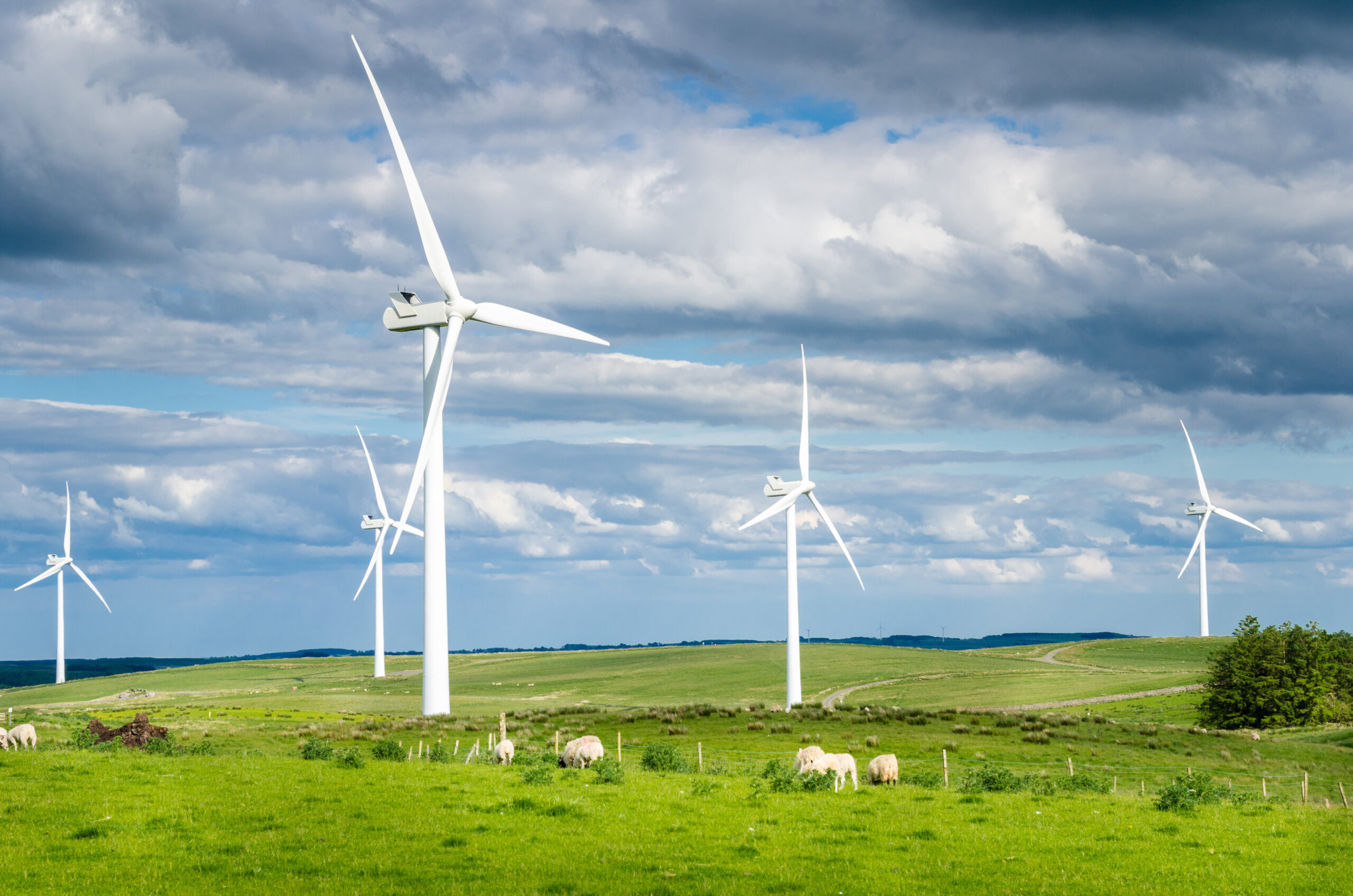Do Labour’s UK clean energy pledges add up?
The Labour Party leader Sir Kier Starmer has pledged to ban all new North Sea oil and gas developments, among measures aimed at boosting UK clean energy.

An unseasonably warm June in the UK and people headed to the coast to enjoy the weather in shorts and sliders. In Westminster, despite the high temperatures, politicians remain suited but there is plenty of flip-flopping on show. Not on their feet, but in some of their policymaking vis-à-vis UK clean energy.
Take the Labour Party, for example. In September 2021, the shadow Chancellor of the Exchequer Rachel Reeves, announced that Labour would plough £28 billion pounds into a Green Prosperity scheme. In total, Labour confirmed that it would spend a whopping £224 billion over eight years.
However, earlier this month, Reeves was forced into an embarrassing u-turn. With the UK economy in the doldrums, she said £28 billion would remain an amount that a Labour government would work towards rather than guarantee.
Labour’s decision to row back on its Green Prosperity scheme meant that the spotlight was firmly on the Labour leader, Sir Kier Starmer. A month or so ago, The Sunday Times ran a story claiming that Starmer would announce plans to block all North Sea oil and gas developments and make Britain “a clean energy superpower.” The question in Edinburgh last week, where Starmer outlined Labour’s vision for the UK energy future, was whether he would make good on the newspaper’s predictions. He didn’t disappoint.
UK clean energy pledges
So what has Labour pledged? In addition to banning all new North Sea oil and gas developments, not including any licenses rubber stamped before the election, Starmer said that the Labour party would create a publicly-owned energy company (GB Energy), which would be headquartered in Scotland, double onshore wind, and increase solar power three-fold. As part of a significant infrastructure drive, Starmer also promised to finance battery factories, steel plants and nine new renewable-friendly ports. The money, he said, would be drawn from a National Wealth Fund.
But does Labour’s energy policy, which is the polar opposite to the Conservative Party’s energy strategy, add up? Not according to Offshore Energy UK (OEUK), which represents the offshore energy industry. David Whitehouse, OEUK’s CEO, said that Labour’s proposed ban on new exploration licences was “too much too soon.” He said that such a ban “would be damaging for the industry, for consumers and for the UK’s net zero ambitions.”
Professor Paul de Leeuw, who is the Director of the Energy Transition Institute at Robert Gordon University, however, sees the bigger picture. “Regarding UK energy policy, there is no argument about the destination. It is simply a question of how the UK gets there,” he told Gas Outlook.
That said, de Leeuw does not believe that the Labour Party’s plan to block all new North Sea oil and gas developments, is necessarily the right one. “If the UK wants to cut emissions,” he notes, “the best way to do so is to actually cut demand for hydrocarbons. If the UK switches off hydrocarbon supplies, it simply won’t work, because the demand will still be there. That means that the UK will end up importing oil and gas from elsewhere, which will potentially increase the UK’s carbon footprint and bring with it less regulatory control, which our own industry provides.”
Carbon footprint
But, might the oil and gas extracted domestically have an equally negative effect on our carbon footprint? Curiously, although Labour’s Starmer says his party will ban all new oil and gas developments, he has left the door open for any new projects that are approved before the next elections. That could mean that Rosebank, which is the largest oil and gas field in the North Sea, could have already received the green light before the next election is fought.
Uplift, an environmental campaign group, says if Rosebank, a field which will produce 90 percent oil and 10 percent gas, is rubber-stamped before the next election, its operations alone would take the UK far beyond its carbon budget targets.
So, are the Labour Party and Starmer being a little disingenuous in not pledging to close down Rosebank’s development, should they be elected?
Gas Outlook contacted Uplift for comment, but it declined. However, Amy McCarthy, Greenpeace UK’s Political Campaigner, said, “…permitting new oil fields like Rosebank would do nothing for bills, our energy security, or our economy. We already have more than enough oil in existing projects to ensure a safe transition to net zero, with no cliff edge. Only by setting out a clear timeline for phasing down fossil fuel extraction can we ensure workers and communities can have their say and truly benefit from the green jobs of the future.”
Renewables job creation
But it is not just Labour’s oil and gas policies that caught the eye. Its hugely ambitious plans for the renewable sector – where Labour says that it will create a million new jobs by 2030 – also stood out. But can Labour really make good on its promises? Professor de Leeuw thinks that in theory it’s possible, but that the reality is quite different.
“It would mean a fundamental sea-change in thinking, policy development, funding for the energy transition, delivering new projects at pace and to changing the way we live our lives. That’s unlikely to all going to happen by 2030,” he adds.
With Labour planning to create a net zero power sector by 2030, it has pledged to quadruple offshore wind output by the end of the decade. When asked if he thought this was possible, De Leeuw says that the offshore wind targets “were the same as those already outlined in the current British energy security strategy,” but to fulfil those objectives, the challenge for whoever is in power “is to achieve greater alignment between industry, government and, most importantly, grid operators.”
Barriers to UK clean energy
As for onshore wind power and solar, Labour has promised to double onshore wind output and increase solar generation threefold. However, whichever administration wins the next election “will first need to fix the current National Planning Policy, which is preventing the majority of onshore wind projects from being realised in England”, says John Malone, the Development Director Energy4All, a company that helps to create community energy projects in the UK.
Malone, who has helped to bring several onshore wind and solar co-operatives to UK communities, explains, “Planning in England is far too complex and too unwieldy. The logjams in the system are too long, meaning planning is too costly for developers and communities who are genuinely interested in making a real difference at local level. It is very frustrating.”
Malone also agrees with Professor de Leeuw that the government must ensure that the National Grid “undergoes a significant upgrade so that it can integrate the energy produced by renewables across the grid network.”
He says, “I am genuinely concerned by the lack of grid infrastructure spending in the UK. Failure to upgrade the grid will leave the UK with a huge queue of solar and wind projects awaiting development. Not only is it a poor way of managing the energy transition from a carbon intensive grid to a net zero one, it would undermine some of the excellent work that is being done to accelerate the energy transition and severely limits community schemes.”
The two largest UK political parties may be on diametrically different energy policy journeys, but both will end on the buffers if the grid is not central to their plans.



